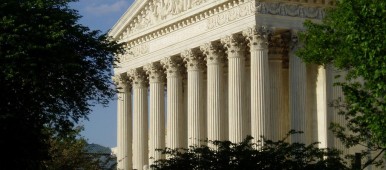
- Mediation
- Arbitration
- Court Neutrals
- Online Dispute Resolution
- Technology
- Court Decisions
- More
- Legislation
- Healthcare
- Guest Posts
- John DeGroote
- John C. Fleming
- Rick Freeman
- Professor Peter Friedman
- Honorable W. Royal Furgeson, Jr.
- James M. Gaitis
- Laura A. Kaster
- Professor John Lande
- Philip J. Loree, Jr.
- Michael McIlwrath
- F. Peter Phillips
- Professor Alan Scott Rau
- Professor Thomas J. Stipanowich
- Professor S.I. Strong
- Richard Webb
- Glen M. Wilkerson
- International arbitration
- Regulation
- Sports and Entertainment
- We’re Back!!!!Well, it’s been a while since we published and that is about to change. Since I spent much of last year becoming
 JAMS Welcomes Karl Bayer to its Panel of NeutralsJAMS, the world’s largest private alternative dispute resolution (ADR) provider, is pleased to announce that Karl Bayer
JAMS Welcomes Karl Bayer to its Panel of NeutralsJAMS, the world’s largest private alternative dispute resolution (ADR) provider, is pleased to announce that Karl Bayer Class Action Waivers in Arbitration Agreements: The Twenty-First Century Arbitration Battleground and Implications for the EU CountriesLinda S. Mullenix, Morris & Rita Atlas Chair in Advocacy at the University of Texas School of Law, has written “Class Ac
Class Action Waivers in Arbitration Agreements: The Twenty-First Century Arbitration Battleground and Implications for the EU CountriesLinda S. Mullenix, Morris & Rita Atlas Chair in Advocacy at the University of Texas School of Law, has written “Class Ac Picking the Proper Technological Tool for Problem-Solving in ArbitrationProfessor Amy J. Schmitz, John Deaver Drinko-Baker & Hostetler Chair in Law and Co-Director of the Translational Data An
Picking the Proper Technological Tool for Problem-Solving in ArbitrationProfessor Amy J. Schmitz, John Deaver Drinko-Baker & Hostetler Chair in Law and Co-Director of the Translational Data An
Recent Posts
Medical Malpractice Arbitration: Not Business As Usual
David Allen Larson, Professor of Law and Senior Fellow of the Dispute Resolution Institute at the Mitchell | Hamline School of Law, and Dr. David Dahl, MD, Mitchell | Hamline School of Law, have published “Medical Malpractice Arbitration: Not Business As Usual,” 8 Yearbook on Arbitration and Mediation 69 (2016).
Continue reading...SCOTUS Finally Agrees to Consider Whether Class Action Waivers Included in Employment Agreements Violate the NLRA
The United States Supreme Court has granted certiorari in three cases related to the legality of class action waivers included in an employer’s arbitration agreement.
Continue reading...Fifth Circuit Affirms Order Denying Motion to Compel Arbitration in Employee Pension Plan Dispute
The United States Court of Appeals for the Fifth Circuit has issued an unpublished opinion stating an accounting firm may not compel a group of hospital workers’ claims over an allegedly underfunded pension plan to arbitration.
Continue reading...Comparing NCAA and Olympic Athlete Eligibility Dispute Resolution Systems in Light of Procedural Fairness and Substantive Justice
Josephine R. Potuto, Richard H. Larson Professor of Constitutional Law and National Collegiate Athletic Association (“NCAA”) Faculty Representative at the University of Nebraska College of Law, and Matt Mitten, Professor of Law and Executive Director of the National Sports Law Institute at Marquette University Law School, have published “Comparing NCAA and Olympic Athlete Eligibility Dispute Resolution Systems in Light of Procedural Fairness and Substantive Justice,” Harvard Journal of Sports and Entertainment Law, Vol. 7, No. 1, 2016; Marquette Law School Legal Studies Paper No. 16-04.
Continue reading...Arbitration
Professor Jill I. Gross, Elisabeth Haub School of Law at Pace University, has published “The Uberization of Arbitration Clauses,” Penn State Yearbook on Arbitration and Mediation, Forthcoming.
Continue reading...Mediation
by Holly Hayes In light of the subprime mortgage crisis, several states have adopted mediation programs to assist homeowners and lenders reach a solution to a mortgage foreclosure action. Keith Seat, at Mediate.com posted recently an update on foreclosure mediation across the United States. Highlights include the introduction of federal legislation that would encourage state and local governments to create strong foreclosure mediation programs. The Preserving Homes and Communities Act of 2009, (S. 1731 and Status) calls for federal matching funds of $80 million for mandatory mediation programs. [Update:] In addition, on December 18, the Foreclosure Mandatory Mediation Act of 2009 was introduced. The bill would require lenders of loans with Federal guarantees or Federal insurance to consent to mandatory mediation. (S. 2912 and Status) Connecticut, which made foreclosure mediation mandatory in July, is mediating less than 40% of the eligible foreclosure cases. The low percentage of mediations is because the program only applies to homeowners who file an appearance in court. When mediation does occur, 75% of cases are settled. In 62% of the cases, homeowners stayed in their homes and 13% moved without foreclosure. In the last three months, about 2,000 cases in Connecticut have been mediated with a team of 24 full-time mediators. Indiana passed legislation that requires creditors to inform homeowners of their right to a settlement conference prior to foreclosure. The Indiana Supreme Court and a number of other government and non-profit agencies completed a training program for over 1,000 judges, attorneys and mediators in how to handle foreclosure cases. In Nevada, workshops are being held to teach homeowners to effectively represent themselves so they can get the most out of a foreclosure mediation. On the other hand, the National Consumer Law Center (NCLC) just released a report claiming that existing foreclosure mediation programs do not place enough obligations on mortgage lenders to fully participate in the mediation process. The report looked at 25 foreclosure mediation programs around the country, including court-related mediation programs in Connecticut, Florida, Indiana, Kentucky, Maine, Nevada, New Jersey, Ohio, and Pennsylvania. The study found that programs are often lacking mandatory rules and that programs with minimal rules fail to impose sanctions for non-compliance. For example, the programs do not require lenders to provide communication substantiating a right to foreclose, they do not mandate consideration of loan modification alternatives and many set procedural barriers that restrict a large numbers of homeowners from participating in mediation. Geoffry Walsh, staff attorney for the NCLC and author of the study states that “if the programs continue to demand little or no accountability from servicers, they will likely go the way of other efforts to control foreclosures that relied on voluntary compliance by the lending industry.” The report suggests a variety of ways to engage lenders in the mediation process, including: requiring lenders to participate in good faith, documenting and enforcing compliance with all participation obligations and allowing requests for mediation to be made up to the time of a foreclosure sale. Technorati Tags: Healthcare, ADR, law, mediation Holly Hayes is a mediator at Karl Bayer, Dispute Resolution Expert where she focuses on mediation of health care disputes. Holly holds a B.A. from Southern Methodist University and a Masters in Health Administration from Duke University. She can be reached at: holly@karlbayer.com.
Continue reading...Healthcare Disputes
Legal Research
About Disputing
Disputing is published by Karl Bayer, a dispute resolution expert based in Austin, Texas. Articles published on Disputing aim to provide original insight and commentary around issues related to arbitration, mediation and the alternative dispute resolution industry.
To learn more about Karl and his team, or to schedule a mediation or arbitration with Karl’s live scheduling calendar, visit www.karlbayer.com.













